Learn English Through Play: Best Games for Your Kids
Learn English Through Play: Best Games for Your Kids
Introduction
"Games aren’t just for recess anymore! In the world of language learning, fun activities like ESL games, spelling contests, and word challenges are helping kids build their English vocabulary and grammar skills faster than ever."
Imagine a classroom buzzing with laughter, teamwork, excitement, and esl games. No textbooks in sight, yet children are effortlessly picking up new English words, practicing grammar, and speaking with confidence. Welcome to the world of learning English through play!
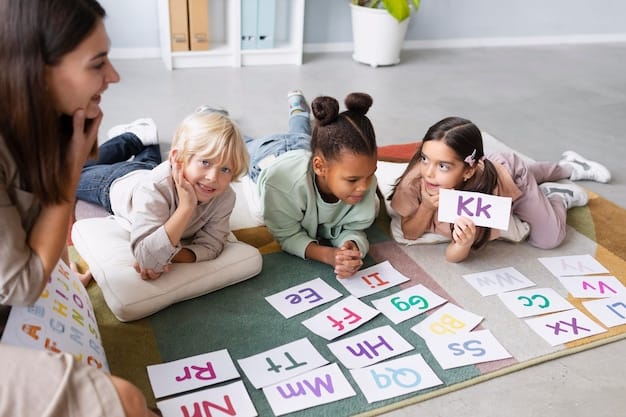
Gone are the days when rote memorization was the gold standard for learning a language. Today, educators, including esl teachers, and parents alike recognize the power of interactive, play-based approaches in building a strong foundation in English.
Learning English through games isn't just about having fun—though that's a big part of it. Games make english vocabulary, grammar, and communication skills come alive. They build a child's confidence, creativity, and long-term language retention, all while ensuring that learning feels natural, exciting, and pressure-free.
Let’s dive into why playful learning matters and discover the best English games for kids that turn study time into a delightful adventure!
Why Learning English Through Play Matters
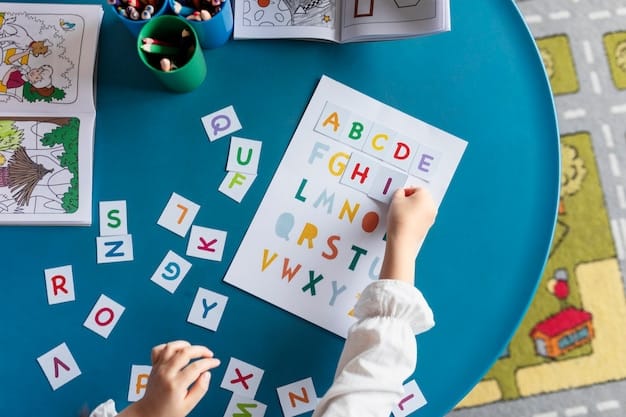
When kids play, they engage deeply and naturally absorb new concepts. This is especially true when it comes to learning English—playful activities allow children to practice language skills and practice english vocabulary without fear of failure or pressure.
"Learning through play" is more than just a trendy educational philosophy. It’s a research-backed method that emphasizes the importance of engagement, discovery, and active participation in learning. According to a report by UNICEF, play-based learning enhances problem-solving abilities, communication skills, and emotional resilience in children.

When applied to English learning, games create a stress-free environment where children feel free to experiment with new words, sentence structures, and ideas. They listen, speak, read, and practice writing skills without even realizing they’re practicing. Instead of being corrected or judged, they are encouraged to explore language naturally, making mistakes part of the fun.
Studies from the American Academy of Pediatrics show that playful learning not only improves academic outcomes but also nurtures a love for learning—a gift that lasts a lifetime.
Types of English Language Games for Kids
Different games serve different purposes in language development. Some focus on vocabulary building, others on grammar reinforcement, and some on boosting speaking and listening skills. By mixing and matching different types of games, you can create a well-rounded English learning experience for your child.
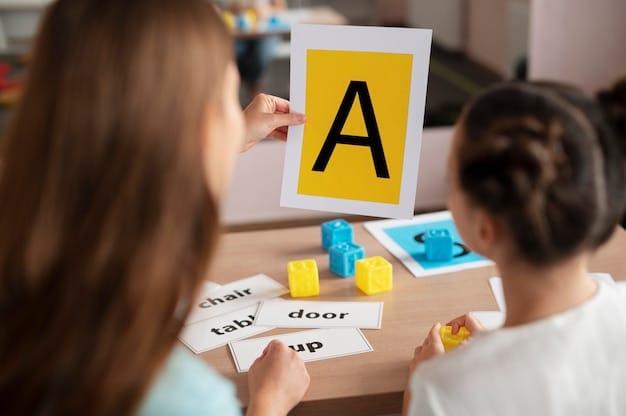
Let's explore the best types of English games for kids!
Word and Vocabulary Games
Word and vocabulary games are perfect for building a strong English foundation. These games challenge children to recall, construct, and recognize new words quickly, enhancing their spelling skills making them perfect for everyday learning sessions.
Here are some fantastic vocabulary-building games:
Scrabble Junior: A child-friendly version of the classic word game. It improves spelling, vocabulary, and word recognition.
Boggle: Shake the cubes and find as many words as possible. It’s a great way to boost word formation skills under time pressure.
Pictionary: Kids draw a word without speaking, and others guess it. A fun way to associate visuals with vocabulary.
Word Bingo: Customize bingo cards with English words. When you call out a definition, kids mark the corresponding word on their cards.
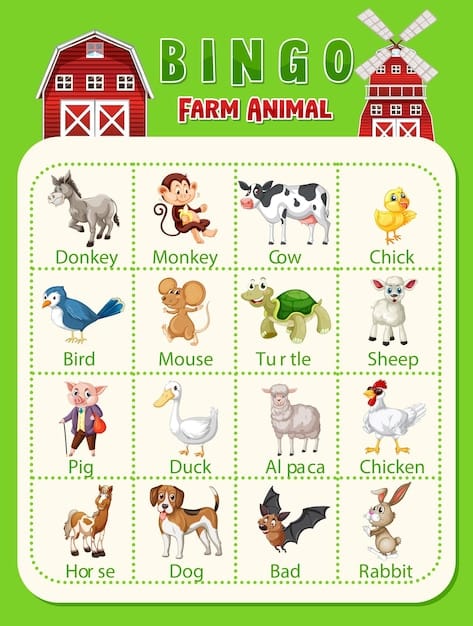
Hangman: Guess the hidden word, letter by letter. It’s simple, yet perfect for spelling and vocabulary practice.
Why they work:
Word games encourage quick thinking and make word recall automatic. Over time, this leads to greater fluency and a more expansive vocabulary.
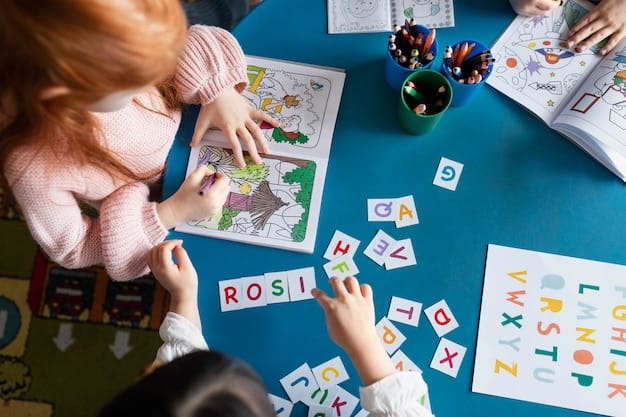
Grammar Improvement Games
Games to improve English grammar help children understand sentence structure, tenses, and parts of speech more intuitively. Many digital tools and printable games now offer interactive grammar exercises that feel more like play than study.
Some great grammar games include:
Sentence Scramble: Give children a bunch of word cards and have them arrange them into a correct sentence. You can make it a timed race for added excitement!
Grammar Jenga: Label Jenga blocks with different parts of speech. As kids pull out a block, they must use the word type correctly in a sentence.
Online Grammar Quizzes: Websites like FunEnglishGames.com offer kid-friendly quizzes with points and rewards.
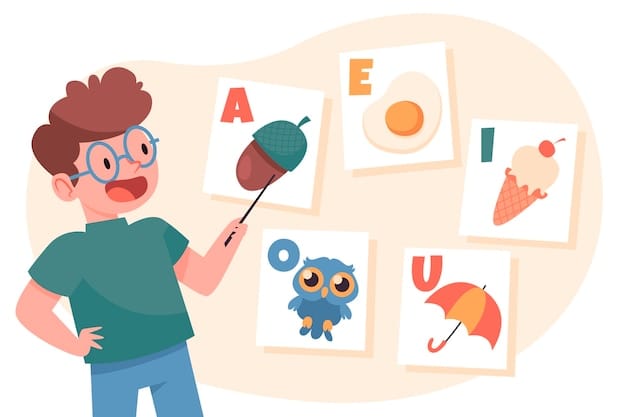
Grammar Board Games: Board games like "Race to Grammar Island" make learning rules about verbs, nouns, and adjectives a thrilling competition.
Why they work:
Grammar games make the abstract rules of English tangible and memorable. Instead of endless worksheets, kids internalize grammar rules and vocabulary category through action and repetition.
Speaking and Listening Games
Speaking and listening games encourage kids to express themselves clearly and respond appropriately. These games improve conversational skills and help develop better pronunciation and intonation.
Fun speaking and listening games include:
Simon Says: A classic game that teaches listening comprehension while reinforcing action verbs.
Role-Playing Games: Create imaginary scenarios (like ordering food at a restaurant) and have kids act them out.
Storytelling Circles: Start a story with one sentence, and each child adds a sentence to continue it. Great for creative thinking and spoken English practice.
Voice-Based Quiz Apps: Apps like VoiceThread allow kids to respond verbally to prompts, fostering listening and speaking simultaneously.
Why they work:
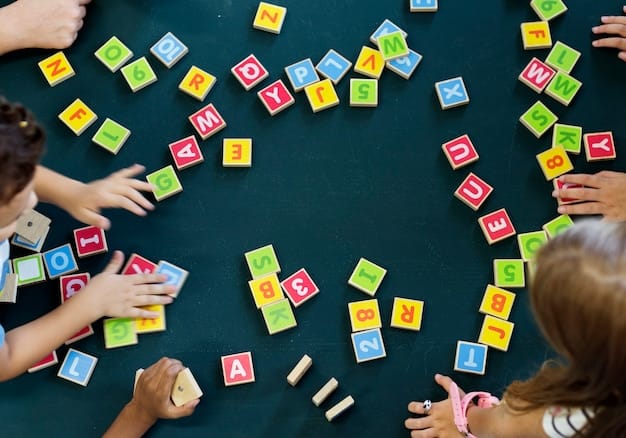
Speaking and listening games build real-world communication skills. They help kids gain fluency, practice correct pronunciation, and understand the rhythm and flow of English conversation.
Online English Games for Students
Online language learning games for students provide a flexible and engaging way to reinforce classroom learning. With gamified learning apps and websites, students can practice English at their own pace while earning rewards and leveling up.
Some excellent online platforms include:
BBC Bitesize: Offers interactive English games aligned with UK curriculum standards.
Funbrain: Features a variety of literacy games and activities for different age groups.
Starfall: Especially great for younger learners, blending phonics, reading, and basic English practice.
Codeyoung's Language Modules: If you want structured, interactive learning modules created specifically for kids, Codeyoung offers courses packed with fun activities, games, and live sessions.
Why they work:
Digital platforms combine the excitement of gaming with targeted English instruction. Plus, kids are naturally drawn to screens—why not make that time educational?
Benefits of Using English Games for Kids
English games for esl learners do more than teach words—they build critical thinking, enhance creativity, and increase emotional confidence. These benefits compound over time and often translate into better academic performance overall.
Here’s a closer look at the benefits:
Improved Memory: Games that require recall, like memory match or crossword puzzles, sharpen a child’s memory and information retention.
Increased Motivation: Winning badges, scoring points, or simply completing a game provides intrinsic motivation to keep learning.
Better Social Skills: Multiplayer games teach children about teamwork, negotiation, and conflict resolution.
Enhanced Problem-Solving: Figuring out answers under pressure trains kids to think quickly and creatively.
Language Retention: Active use of vocabulary and grammar in a playful setting leads to deeper, longer-lasting language acquisition.
In short, English games transform passive learners into active, confident communicators.
How to Make Learning English Fun with DIY Games
Don’t have access to fancy apps or kits? No problem! DIY English games like “Create Your Own Storybook” or “Find the Object” vocabulary hunts can be both fun and educational using just paper, pens, and imagination.
"What’s better than a spelling bee? A spelling party! 🥳 With English games buzzing through the classroom, kids master English vocabulary, grammar skills, and confidence—all while having the time of their lives. Learning + laughing = success!"

Here are some simple yet effective DIY ideas:
Flashcard Memory Game: Create flashcards with words and their meanings. Mix them up and have your child match the pairs.
Vocabulary Scavenger Hunt: Hide objects around the house and give clues in English. Kids must follow the instructions and find the treasures.
Storytelling Dice: Create dice with different characters, settings, and actions. Roll the dice and weave a story using the prompts.
Word Ball: Toss a ball back and forth. Each time someone catches it, they must say a new English word or complete a sentence.
Create Your Own Board Game: Make a simple board game where each square prompts a vocabulary challenge or grammar question.
Tip for parents and teachers:
Keep it light, silly, and energetic! Kids thrive when they’re allowed to be playful and creative while learning.
Conclusion
Making English fun through games is one of the best gifts you can give your child to improve their english skills . Whether online or offline, structured or spontaneous, every game is a step toward greater fluency and confidence.
By incorporating English learning into playtime, you're not just teaching a subject—you’re building a joyful relationship with language that will support your child’s academic success and communication skills for years to come.
So, next time you sit down for “study time,” why not roll the dice, play a card game, or build a story together? Your child will thank you—not just with better grades, but with a lifetime love for learning.
"What’s better than kids mastering English vocabulary, grammar, and writing skills? Watching them do it through laughter, teamwork, and friendly competition! Welcome to the world of English games—where fun and learning go hand in hand."
Best English Games for Kids - FAQs
What are the best English games for kids to learn vocabulary?
Some top English games for kids to boost vocabulary include Hangman, Scrabble Junior, and Pictionary—classic games that bring a fun way to master new words. Flashcard games tailored to a child's age group are equally powerful. These fun games focus on vocabulary words, spelling skills, and quick word recall. Activities like crossword puzzles, scavenger hunts, or categorizing words into a vocabulary category are excellent too. Through language learning games, young learners naturally absorb new words and build a strong English vocabulary, which is critical for mastering more complex language skills later.
Can games improve English grammar for kids?
Absolutely! Grammar games like Sentence Scramble, Grammar Jenga, and online ESL games make learning grammar rules exciting and accessible. Instead of repetitive drills, playing games turns learning into fun activities where kids practice sentence structure, word order, and grammar patterns without the fear of making mistakes. Whether it's board games or quick esl activities in an English class, these tools help students remember correct answers, build better writing skills, and enjoy the process of mastering English grammar in a playful, rewarding environment.
Are there online English games for students that are effective?
Yes! Many online platforms like BBC Bitesize, Funbrain, and Starfall offer brilliant English games for different age groups. These websites feature language learning modules full of interactive storytelling, vocabulary games, and grammar exercises—perfect for both young learners and advanced students. Digital language learning games enhance listening comprehension, encourage students to practice English vocabulary, and celebrate progress with badges or leveling up. They cater to first students starting a new language journey and last students polishing their language skills alike. With such fun English apps, learning feels like play rather than work!
Why is learning English through play beneficial for kids?
Learning English through play is one of the most effective ways to build English skills. When children engage in fun games, they aren't just memorizing—they're creating connections that strengthen memory, spelling skills, and critical thinking. ESL teachers often notice that when students enjoy fun English activities, they retain more vocabulary words and grasp grammar rules faster. Plus, scientific studies show that fun activities in the classroom build stronger neural pathways for language learning. Playing games lowers anxiety, encourages trying out the new language, and builds resilience against the fear of making mistakes.
How do games to learn English compare to traditional teaching methods?
Unlike traditional rote methods that focus heavily on memorization, fun games in English class create lively spaces for practice, creativity, and deeper learning. Games bring fun to otherwise tough concepts, making abstract English language ideas more concrete. When the whole class participates—whether in board games, esl activities, or team-based challenges—students actively engage with vocabulary, sentences, and grammar concepts. Language learning becomes a natural part of everyday interaction, leading to higher confidence, better academic results, and stronger language skills overall, compared to purely lecture-based lessons.
How do fun English games help improve communication skills?
Fun English games nurture essential communication skills like speaking, listening, and negotiating. Through games like role-plays, storytelling circles, or classic games like Simon Says, one student must respond to cues, ask questions, and express thoughts, while others listen and react—all boosting listening comprehension. Whether it's giving the correct answer in a game or crafting sentences together in a storytelling challenge, students practice real conversations. By encouraging verbal play and collaborative problem-solving, these activities enhance the ability to use English words naturally and make language learning feel like a joyful journey rather than a chore.
Comments
Your comment has been submitted